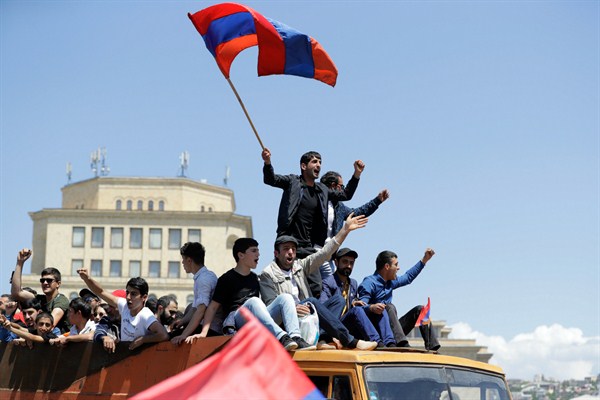On May 8, Armenian opposition leader Nikol Pashinyan was chosen by lawmakers to become the next prime minister, culminating three weeks of massive popular demonstrations against the country’s opaque and corrupt political establishment. The initial catalyst for the demonstrations was former President Serzh Sargsyan’s effort to hold onto power by assuming the premiership, having already revised the constitution to strengthen the prime minister’s executive powers. With expectations for change now running high, Pashinyan has his work cut out for him if he is to retain the support of the diverse coalition that brought him to power. In an email interview, Richard Giragosian, director of the Regional Studies Center, an independent think tank in Yerevan, Armenia, discusses Pashinyan’s supporters, the opposition’s policy differences with Sargsyan’s Republican Party, and the role of Armenia’s civil society in ensuring that the goals of the popular mobilization are not abandoned.
World Politics Review: What political and demographic constituencies do Nikol Pashinyan and the other prominent political opposition parties in Armenia represent, compared to the ruling Republican Party?
Richard Giragosian: In terms of the political constituency of Nikol Pashinyan, the opposition leader who was elected prime minister this week, there are three important factors. First, the wave of mass demonstrations that led to his election differed from earlier political protests due to their positive and peaceful approach. What little anger there was on display was outweighed by enthusiasm and, later, victorious jubilation. This is revealing because it affirms the fact that the largely youthful activists behind the protests represented a new, much more constructive wave of activism, with many rallying around Pashinyan and embracing nonviolence and civil disobedience as their first experience with political activity.

